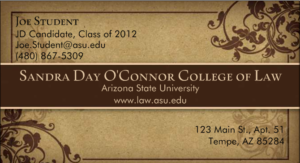
Rachel Rodgers, principle attorney of Rachel Rodgers Law Office, has a virtual law office (VLO) that is dedicated to new business owners. She is sharing her knowledge and experience with her latest endeavor, Freedom Is The New Rich, where she will provide products and services to help lawyers and entrepreneurs pursue the work life they’ve always wanted. Rachel was gracious to take some time out of her busy schedule to talk about her upcoming teleclass called 21st Century Lawyer: Lifestyle Design with a Virtual Law Office.
Why are you calling this new endeavor Freedom Is The New Rich?
Because freedom IS the new rich! When I talk to fellow lawyers that are unhappy in their work, it’s usually because they want more freedom in their lives, not more money. I used to think that in order to live the way I wanted to live and do work that was exciting and meaningful, I would have to get rich first. I thought that living the way I truly wanted had to wait until retirement. Living richly doesn’t require being a millionaire. It just requires making a conscious choice and strategic decisions about how you want to live your life instead of just accepting the way society says you should live.
Tell us more about the 21st Century Lawyer Teleclass.
It’s a 4-week teleclass that will consist of 4 one-hour class sessions, followed by Q & A. The classes will take place Wednesday evenings from October 5th-26th and participants can attend class via the web or phone. All of the classes will be recorded and made available on the course website immediately so those who aren’t available at the specified time will still be able to participate. All participants will also receive the 21st Century Lawyer Virtual Law Office Guide, which is chock full of resources that will help participants create their own VLO. The introductory price is $147 and from now until September 26 at midnight, I’m offering early enrollment for just $97.
What is the purpose of this teleclass?
Each class will begin with a practical, informative lecture on that week’s topic. After each lecture there will be a class survey where participants answer a few relevant questions and then a class discussion with audience participation will take place where we will sort through the relevant questions and deal with participant fears. By the end of the class, participants will have a complete action plan for creating their own VLO that allows them to practice the type of law they want for the kind of clients they want, and that is designed to fit the way they want to live as well.
Who should take this teleclass?Â
Any lawyer or soon-to-be lawyer who is not content with the status quo, who understands that the legal marketplace has changed and knows there is a way to have their ideal lifestyle while practicing law the way they always wanted.
What types of resources will participants receive as a result of participating in this class?
Participants will learn how to quiet their fears about living their ideal lifestyle, how to identify what their ideal lifestyle truly is, how to create a financial plan to start a VLO and support their ideal life, how to create a profitable VLO in a desired niche area and how to obtain a steady flow of desired clients. They will also receive resources needed to start a profitable VLO including information on different types of technology, how to create a VLO website, complying with ethics requirements, creating sources of passive income and much more!
What are the benefits of having a VLO compared to a traditional law firm?
A VLO can be operated for far less than the cost of running a traditional law office. The technology allows lawyers to serve their clients securely from anywhere. Additionally, an online-based practice has a presence throughout the states in which the attorney is barred, rather than in just their local community. That means they have a greater potential client pool than most traditional law offices. Other benefits include offering convenience and affordability to clients. Offering unbundled legal services allows clients to purchase only the services that they need from you instead of mandatory full representation, which allows clients who can’t afford high hourly rates to obtain legal services.
What’s your response to lawyers who claim that no one has enough expertise to be a solo attorney right out of law school?
There is a quote that says, “Those who say it cannot be done should not interrupt those who are doing it.†Furthermore, going solo right out of law school is not a new concept. Jay Foonberg, an award-winning lawyer and author of the classic, ‘How to Start & Build a Law Practice,’ not only believes it’s possible to go solo out of law school but also recommends it! Abraham Lincoln also advised young lawyers to go solo. He said, “Always bear in mind that your own resolution to succeed is more important than any one thing.†A lawyer who studies, has mentors and gives each case his or her all, is not likely to fail. In fact, any young lawyer who doubts their expertise should spend a day at the courthouse. You’ll be shocked at how obviously terrible some very experienced attorneys really are. Experience alone does not determine your ability to practice law.
Participants can register for 21st Century Lawyer: Lifestyle Design with a Virtual Law Office starting on Tuesday, September 20, 2011. Early registration is $97 until September 26th and then the price goes up to $147.
This sounds like a great opportunity for any law graduate or attorney who is ready to go solo and have the freedom to have the career they’ve always wanted.



